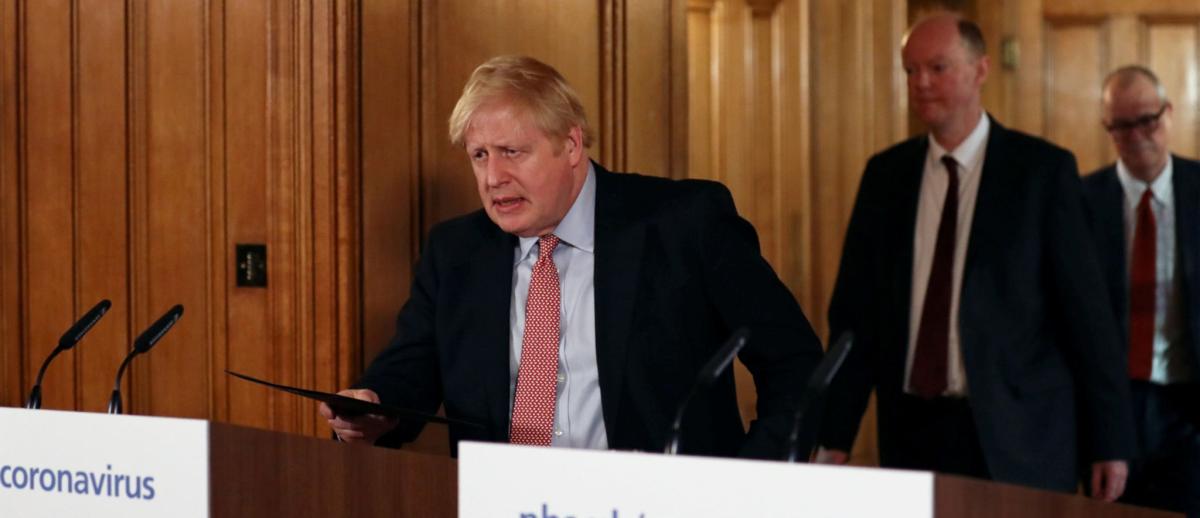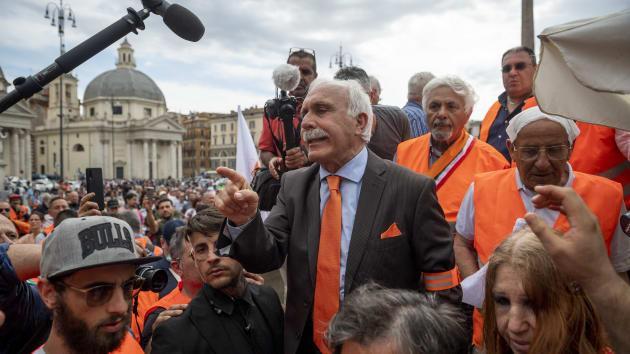Anti-Populist Lessons of Coronavirus
archive


Anti-Populist Lessons of Coronavirus
Many of us are playing the game of analyzing how far coronavirus will bring permanent changes to our society and, if so, what those changes will be. Will there be a large-scale and long-term switch to home working, or will offices and workplaces develop new strategies to maintain hygiene and social distancing, making working life look much like it did before? Will there be an end to the short weekend break with travelers jumping on an airplane, or will people discover the pleasures of walking in their local area? Will the internal combustion engine and the private car come back to clog our streets and pollute our atmosphere, or will people take to cycling?
With these, as with so many other questions about COVID-19, I confess to ignorance. I can conjure different hypotheses to support almost any prediction. This is particularly so when wondering whether the virus will bring an end to populism. Most populists have not done well in the pandemic. You have to be a fundamentalist trapped in a paranoid belief-system to think that Donald Trump, Jair Bolsonaro or Boris Johnson has done well at governing in the crisis. By contrast, the true leaders have been sober and sensible anti-populists like Jacinda Ardern in New Zealand and Angela Merkel in Germany, who have shown an ability to grasp detail, deploy resources and explain to the public clearly and in adult tones what can, and most importantly what cannot, be done by governments. On the other hand, even some populists, like Luca Zaia the regional governor in Veneto, have managed effective policy responses. Logic and experience suggest that the balance of assessment is against the populists, but how many people will think in that way, we do not know.
So, rather than guess as to whether the pandemic will end populism, I focus on what I hope will happen. What forces will make for an effective anti-populist response in the wake of the crisis?
To answer this question, we need to remember, As Cas Mudde has pointed out,1 that populism lives by three beliefs. First, populist think that the prevailing system of government has been taken over by an unrepresentative elite, so that the opinions and interests of the people are neglected. Second, populists define the people whose interests should count not in terms of all those living in the country but those who are thought to be the ‘real’ people defined in terms of some mythical heartland. Third, populists say that what is needed is the direct involvement of the true people in government. Each of these propositions can be challenged in the light of coronavirus.
Let us begin with the proposition that government has been taken over by an unrepresentative elite, whereas it is the interests and opinions of the people that should prevail. In many states and societies it is unfortunately true that governments are in the pockets of an elite. However, the solution to this problem is not to pretend that representative government can be replaced by a system of direct popular rule brought about by a series of referendums and plebiscites. All that would do is deliver the government into the hands of those who would be able to manipulate those devices to their own advantage. Instead, civil society organizations, political parties and movements and other opinion formers need to make a central part of their job the task of holding political representatives and governments to high standards in providing the public goods on which we all rely.
Ironically the virus is a help in this regard. The virus does not read Trump’s tweets; it is not seduced by Boris Johnson’s bluster; and it does not respond to Bolsonaro’s machismo. Moreover, the success of a country’s policy lends itself to international comparisons, in which even the most significant confounding variables do not affect the large differences in success, say between Germany and the UK. But there is more. The COVID-19 crisis has also brought home the significance of the public services on which we all depend, most obviously the medical services but also those educating children or caring for the elderly or infirm. How far governments meet high standards in this regard becomes crucial. In opposing the return of populism, anti-populist political parties need to ram home the message that the job of government is to provide the public goods on which we all depend and that representative governments will be judged against their performance in doing that.
What then of the claim that government should serve the ‘real’ people, putting first the country’s heartland? Here the pandemic has brought an important lesson. If we have been reminded of anything by the virus, it is the truth summed up in the principle that no one is safe until we all are safe. A highly contagious virus that is severe or fatal in its effects, but often in unpredictable in its ways, is as clear a reminder, if any were needed, that living in a society makes us dependent on one another. Public health services need to be universal in coverage and support is needed for all who are deprived of employment, not least to prevent illicit but unsafe working conditions. This is true whether we are talking about garment workers in the UK or migrant workers in meat-processing factories in Germany.
If we have been reminded of anything by the virus, it is the truth summed up in the principle that no one is safe until we all are safe.
In the same vein, when we turn to international relations, a similar lesson applies. The principle of ‘my country first’ does not generalize. Not every country can hope or expect that it will be first, because no country can solve its own problems without the cooperation of other countries. In an emergency situation it may well be necessary to restrict in-bound travel, as happened in New Zealand and elsewhere. But the longer-term solution to controlling a highly contagious infection requires international agreement embodied in rules and regimes. Otherwise countries will be locked into a mutually disadvantageous struggle of all against all for protective equipment, medicines and, above all, scientific understanding of causes and possible treatments. For all its faults, the World Health Organization is what we have to start with, which is why Trump’s proposal that the US withdraw is so serious. What is true of coronavirus is true of climate change, international financial stability, and the movement of people. There is no future for a heartland that says ‘stop the world, I want to get off’. Instead we must all ask how we can all live peaceably and securely together.

Former Italian Carabinieri General Antonio Pappalardo, leader of the new COVID-19 denying political movement “Orange Vests” (Gilet Arancioni) addresses the media at a rally in Rome on June 2, 2020. (Photo credit: Antonio Masiello)
The third principle of populism is that the people need to be directly involved in government. Where elites stood, there the people should be. In fact, coronavirus has taught us that public participation is important, but in a different way from that envisaged by populists. Populists imagine that the people can somehow be assembled in a collective act of government. That is impossible for reasons of scale, if nothing else. However, to control a virus does require widespread participation through responsible behavior in public, whether that entails wearing masks, practicing thorough personal hygiene, or informing the public health authorities of one’s health status. This is one of those cases where the personal really is political. In a non-populist democracy, public participation comes through the exercise of responsible action in accordance with a civic culture.
In this regard there are real reasons for optimism. One of the reasons why the UK government fatally delayed lockdown was that some of its advisers thought that people would chafe at prolonged restraint. In fact, and despite the irresponsible behavior of a minority, most people have complied rigorously with the restrictions. Learning to live with restrictions on your personal freedom is part of what it means to be a member of a cooperative society. COVID-19 has taught us that. The hope is that the lesson will transfer to a whole range of activities needed for the provision of public goods, whether that be water conservation, solid waste reduction, or energy use.
The effects of COVID-19 on populism are not a matter of impersonal scientific laws, but of human political action. Responding to populism depends as much on how non-populist political parties behave as on populist parties themselves. In most European countries, these non-populist parties represent themselves as social democrats, center-right conservatives, liberals and green parties. Each will have its own priorities. The hope is that all can act responsibly on the lessons that COVID-19 has brought home despite the tragedies that it has undoubtedly caused.
Cas Mudde and Cristóbal Rovira Kaltwasser, Populism: A Very Short Introduction (Oxford: Oxford University Press, 2017), Chapter 1.



